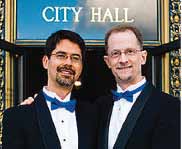 Even when my 89-year-old dad could barely walk and had compromised memory, he would survey his elder community’s dining hall at meal time to see if anyone was sitting alone, and join them even if he had already finished eating. It was a simple act of empathy and kindness that I believe he absorbed from his parents, trying to make ends meet in small town Illinois during the Great Depression. Indeed, I remember that my dad, who passed away earlier this year, throughout his life gravitated in social situations to people he perceived to be excluded or to be less popular.
Even when my 89-year-old dad could barely walk and had compromised memory, he would survey his elder community’s dining hall at meal time to see if anyone was sitting alone, and join them even if he had already finished eating. It was a simple act of empathy and kindness that I believe he absorbed from his parents, trying to make ends meet in small town Illinois during the Great Depression. Indeed, I remember that my dad, who passed away earlier this year, throughout his life gravitated in social situations to people he perceived to be excluded or to be less popular.
At age 19, my dad was preparing to ship out to the Pacific Theater in World War II, when he heard an African American soldier’s story about how, in a military lunchroom, two dozen German prisoners of war and their white American guards ate, laughed, and smoked cigarettes together, while he and the other African American soldiers had to look on from the kitchen. My dad was outraged and wrote to his parents:
“The Declaration of Independence says that all men are created equal. Also, we happen (supposedly) to be fighting this war for the reason that Hitler says that the Germans are superior to all others, and that certain others (the Jews for one) are decidedly inferior. We are fighting these doctrines…and what do we do but turn around and do the same thing. We persecute the Negroes; we persecute the Jews; we persecute the Japanese-Americans…we consider the Chinese below us…”
I’ve always been struck how my dad, who grew up in small town Southern Illinois, developed such a keen multicultural and civil rights awareness as a teenager. Only recently have I come to perceive it as a political manifestation of the practice of simple kindness that surrounded him in my grandparent’s home. My dad and mother continued that mission and educated my brother and me about the civil rights movement as we grew up in the 1960s in Missouri.
In 2004, I attended a marriage equality forum that brought out many politically conservative Christians. A teenager approached me and asked me a common evangelism opener: Do you know what will happen to you after you die? Not knowing what I wanted to say or how we could find connection, I replied, “Why do you ask? What are your intentions?” We talked for a long time, with my responding to whatever he said with silence and then questions to elicit more deeply what his intentions were. After awhile, the teenager appeared somewhat uncomfortable with the unusual conversational style, and then seemingly out of nowhere said, “I guess I’m not being very kind.” I smiled and spontaneously responded that we had finally found connection: the value of kindness.
Last year’s holiday season witnessed the amazing sight of LGBT couples dashing to get married in Salt Lake City. This year, we await news of whether the United States Supreme Court will review one or more of the marriage cases now before it, and establish nationwide marriage equality in 2015. At the same time, events like the ones in Ferguson, Staten Island, and Cleveland, and the responses to them dominate the news. All of these things remind us of the truth that anytime anyone is treated less than equal because of who they are, we are diminished as people. We look to the New Year to bring full constitutional rights and protections for lesbian, gay, bisexual, and transgender Americans at the Supreme Court, and for our nation to chart a new course to address racial and social injustice. This holiday season, we reflect on empathy and kindness. Happy Holidays and New Year.
John Lewis and his husband Stuart Gaffney, together for nearly three decades, were plaintiffs in the California case for equal marriage rights decided by the California Supreme Court in 2008. They are leaders in the nationwide grassroots organization Marriage Equality USA.
Recent Comments